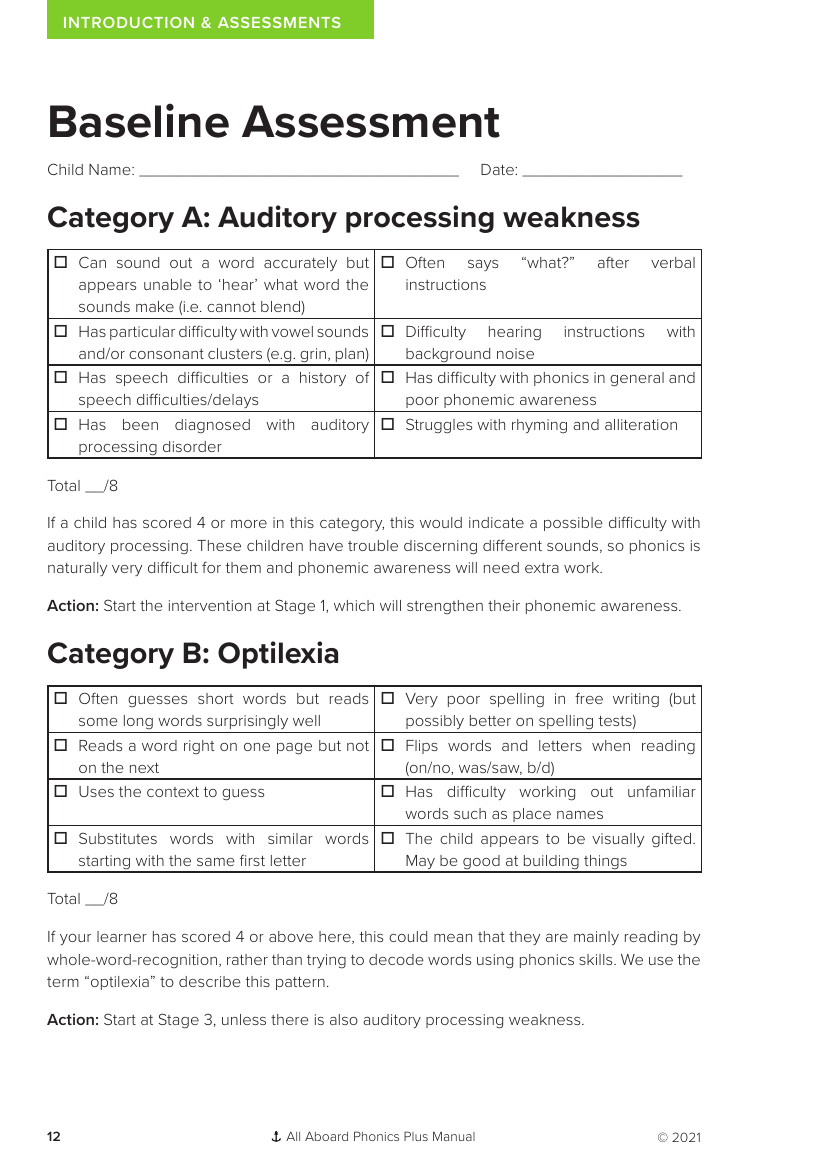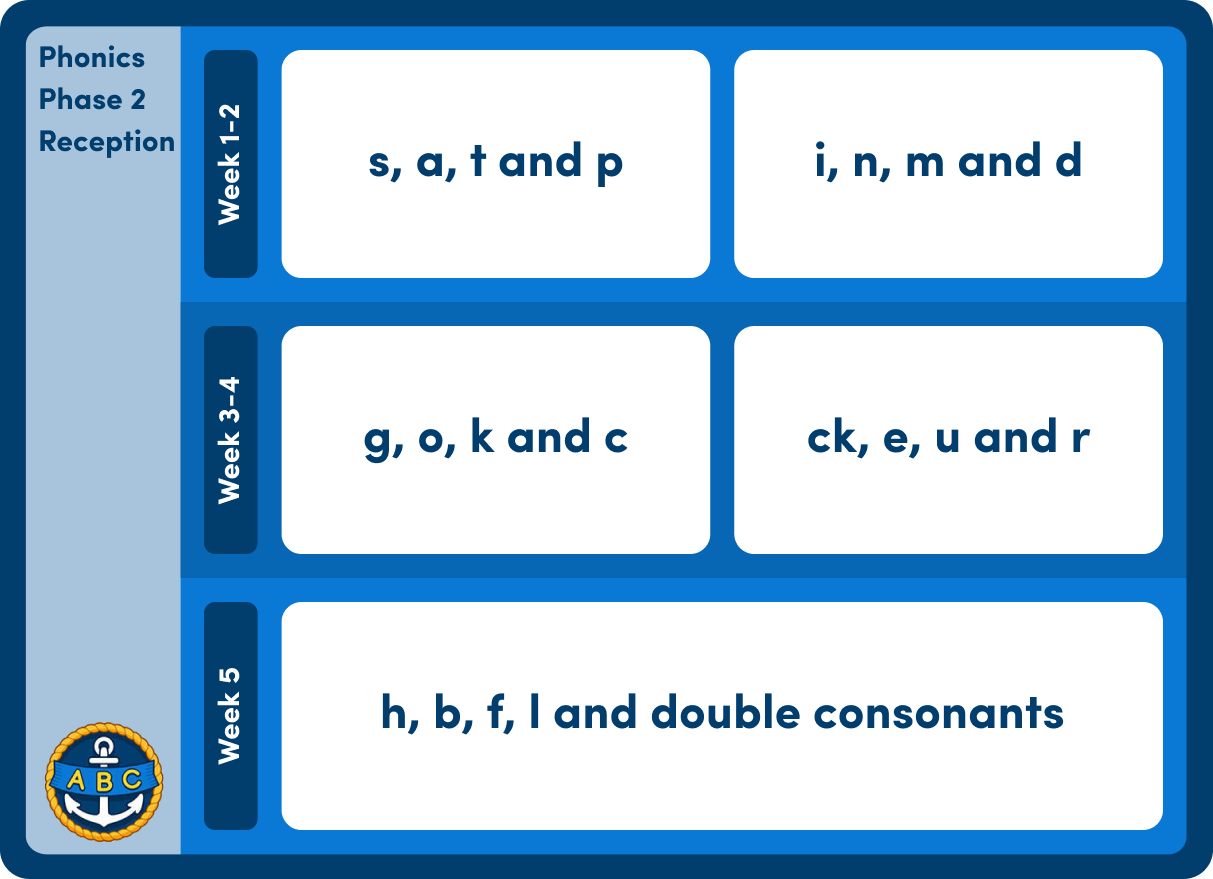Baseline Assessment Categories A, B, C, D and E - Resource

English Resource Description
The 12 All Aboard Phonics Plus Manual provides a comprehensive Baseline Assessment resource designed to identify specific learning difficulties in children related to phonics and reading. The assessment is categorised into five distinct areas, each highlighting a different potential challenge a child might face. Category A focuses on auditory processing weakness, where a child may struggle with blending sounds to form words, following verbal instructions, especially with background noise, and may have a history of speech difficulties. Scoring four or more in this category suggests a possible difficulty with auditory processing, prompting the recommendation to start intervention at Stage 1 to enhance phonemic awareness.
Category B, termed 'Optilexia', captures children who tend to guess short words and may read longer words with surprising accuracy. These children often exhibit very poor spelling, flip words and letters, and rely on context clues over phonics skills. A score of four or above indicates a reliance on whole-word recognition. In this case, intervention should begin at Stage 3, unless auditory processing weakness is also present. Category C addresses short-term memory weakness, with indicators including difficulty with long words, following instructions, and general struggles with school learning. A score of four or above suggests intervention should start at Stage 5. Category D concerns eye tracking, where children may find large text easier to read, skip lines, or show signs of fatigue when reading. Scoring three or more indicates weak eye tracking ability, and large text should be used alongside specific eye tracking exercises. Lastly, Category E looks at contrast sensitivity, where issues like text appearing to move on the page or improved reading with a coloured overlay may suggest Irlen’s syndrome, and the use of a coloured overlay is recommended during reading activities.

